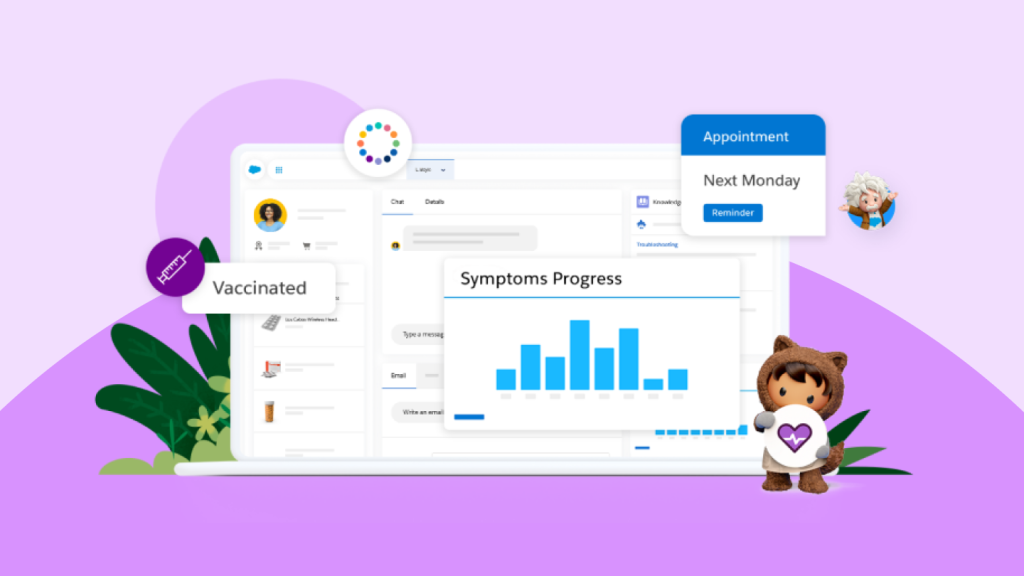In the evolving landscape of revenue management, Salesforce offers powerful solutions to streamline your sales and finance operations. For years, Salesforce CPQ (Configure, Price, Quote) has been the go-to for automating complex quoting processes. However, with the advent of Salesforce Revenue Cloud, the conversation has shifted. This blog will break down the key differences between these two offerings and help you determine which is the right fit for your business.
Salesforce CPQ: The Quoting Powerhouse
Salesforce CPQ, born from the SteelBrick acquisition, is a robust solution designed to help sales teams generate accurate, consistent, and professional quotes with speed and efficiency. It’s a managed package that enhances Salesforce Sales Cloud with advanced capabilities for:
- Product Configuration: Handles complex product bundles, dependencies, and rules, ensuring that sales reps configure valid and sellable solutions. This includes “Guided Selling” to walk reps through product selection.
- Pricing Management: Automates pricing calculations, applying various discounting options (volume, multi-tiered, automatic, partner), and supporting subscription pricing and prorations. It can manage a “Price Waterfall” to show all adjustments.
- Quote Generation: Quickly generates professional, branded quotes, proposals, and contracts, often with dynamic content based on specific deal criteria.
- Contract and Renewal Management: Simplifies the creation of contracts from won opportunities and automates the renewal process for subscriptions, including amendments and co-terminations.
- Advanced Approvals: Provides flexible and customizable approval workflows based on various criteria like discount percentage or quote value.
When to Choose Salesforce CPQ:
Salesforce CPQ is an excellent choice if your primary need is to:
- Automate complex product configuration and pricing: You have a large product catalog with intricate bundles, dependencies, and pricing rules.
- Improve quoting accuracy and speed: Your sales team spends too much time manually creating quotes, leading to errors and delays.
- Standardize quote generation: You need consistent, professional-looking quotes that reflect your brand.
- Manage subscriptions and renewals efficiently: You have recurring revenue models and need to streamline contract generation, amendments, and renewals.
- Require robust approval processes: Your deals involve multiple levels of approval based on various criteria.
Considerations: While Salesforce CPQ is powerful for quoting, it’s generally considered the “front-end” of the revenue process. For comprehensive billing, invoicing, and revenue recognition, businesses often need to integrate it with other systems or Salesforce Billing. It’s important to note that Salesforce CPQ is entering an “End of Sale” phase, with Salesforce’s future investment focused on Revenue Cloud.
Salesforce Revenue Cloud: The End-to-End Revenue Lifecycle Platform
Salesforce Revenue Cloud, formerly known as Revenue Lifecycle Management (RLM) or Revenue Cloud Advanced (RCA), is a more comprehensive solution designed to manage the entire revenue lifecycle on the Salesforce platform. It essentially builds upon the foundation of CPQ and extends it to include billing, invoicing, contract lifecycle management, and revenue recognition, offering a unified quote-to-cash experience.
Key capabilities of Revenue Cloud include:
- All CPQ functionalities: It incorporates the core Configure, Price, Quote capabilities found in Salesforce CPQ.
- Native Billing and Subscription Management: Automates billing for various models (one-time, subscription, usage-based), including invoicing, payment collection, and recurring revenue management.
- Contract Lifecycle Management (CLM): Provides end-to-end management of contracts, from creation and negotiation to redlining, approvals, and obligation management, often with AI-powered assistance.
- Revenue Recognition and Compliance: Simplifies complex revenue recognition processes to ensure compliance with accounting standards (e.g., ASC 606, IFRS 15).
- Dynamic Revenue Orchestration (DRO): Automates post-sale workflows like provisioning licenses or triggering product deliveries.
- Unified Product Catalog and Pricing: Offers a centralized catalog for all B2B channels and advanced pricing procedures with a visible pricing waterfall.
- Headless API Architecture: Built natively on the Einstein 1 platform, it offers robust and flexible APIs for seamless integration with external systems, supporting omnichannel experiences.
When to Choose Salesforce Revenue Cloud:
Revenue Cloud is the ideal choice if your business:
- Requires an end-to-end quote-to-cash solution: You want to unify your sales, finance, and operations on a single platform, eliminating data silos and manual handoffs between systems.
- Operates with complex revenue models: You deal with subscription, recurring, or usage-based billing, and need robust capabilities for managing these models.
- Needs comprehensive contract management: Your legal and sales teams require a streamlined process for contract creation, negotiation, and compliance.
- Prioritizes financial compliance and accurate revenue recognition: You need to meet accounting standards and have real-time insights into revenue performance.
- Seeks future-proofing and scalability: Revenue Cloud is Salesforce’s strategic direction for revenue management, offering greater flexibility, native capabilities, and ongoing innovation.
- Is new to revenue management solutions: Starting with Revenue Cloud provides a flexible and scalable platform from the outset.
- Is currently using CPQ but facing limitations: If your existing CPQ setup requires extensive customizations for billing, contract management, or other post-sales processes, upgrading to Revenue Cloud can offer a more integrated and efficient solution.
Key Differences at a Glance:
| Feature/Aspect | Salesforce CPQ | Salesforce Revenue Cloud |
| Scope | Primarily Configure, Price, Quote | End-to-end revenue lifecycle management (CPQ + Billing + Contracts + Revenue Recognition + more) |
| Architecture | Managed package for Sales Cloud | Built “on-core” on the Einstein 1 Platform (native, API-first) |
| Core Functionality | Quoting, product configuration, pricing, approvals, basic contracts, renewals | All CPQ features, plus native billing, subscription management, advanced contract lifecycle management, revenue recognition, dynamic orchestration |
| Integration | Requires integrations for billing/CLM | Unified platform, seamless integration across sales, finance, and operations |
| Complexity | Relatively easier to implement for quoting | More comprehensive, potentially more complex to set up due to broader scope |
| Future Direction | Entering End of Sale phase | Salesforce’s strategic and future-proof revenue management solution |
| Ideal For | Businesses focused primarily on complex quoting and basic subscription management | Businesses seeking a unified, scalable platform for all revenue operations, especially with recurring or usage-based models |
Export to Sheets
Conclusion
While Salesforce CPQ remains a powerful tool for configuring and quoting, Salesforce Revenue Cloud represents the future of revenue management. For businesses looking to automate their entire quote-to-cash process, manage complex recurring revenue models, and achieve greater financial visibility and compliance, Revenue Cloud is the clear strategic choice.
If you’re already leveraging Salesforce CPQ effectively and your current system meets your needs, a careful assessment is required before transitioning. However, for those embarking on a new revenue management journey or outgrowing the capabilities of CPQ, Salesforce Revenue Cloud offers a truly integrated and scalable solution to drive growth and efficiency. The decision ultimately hinges on the breadth of your revenue operations and your long-term strategic goals.




